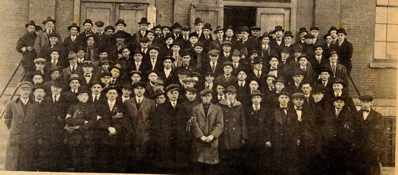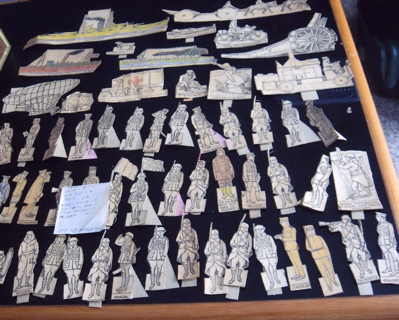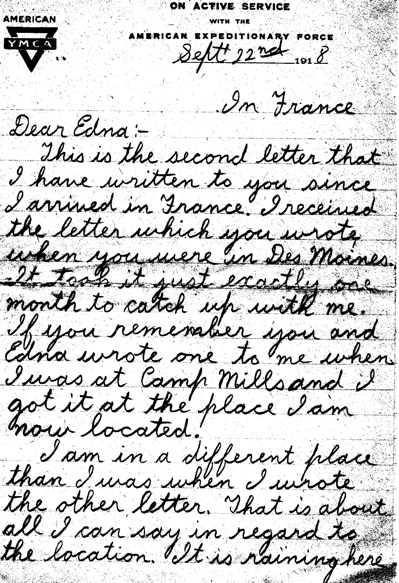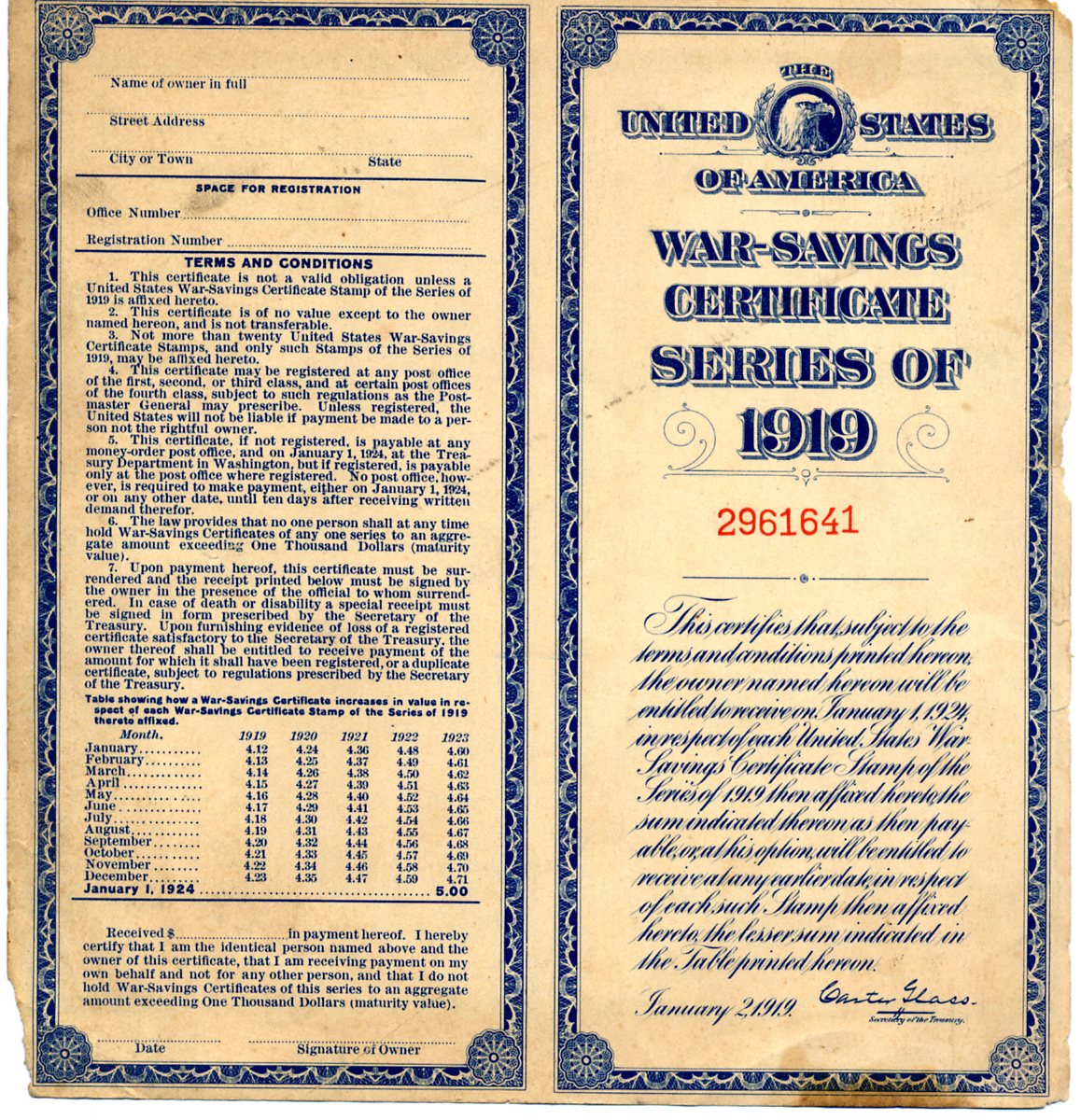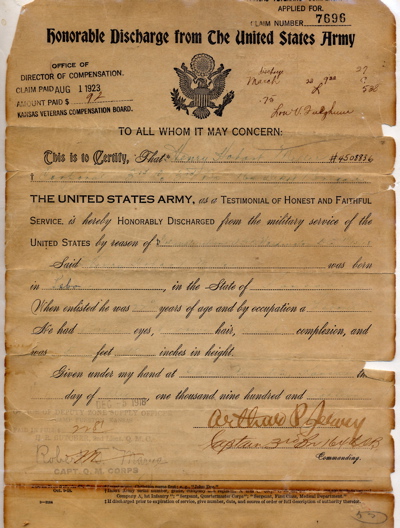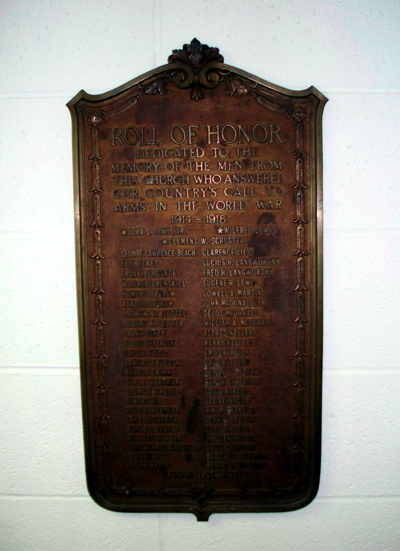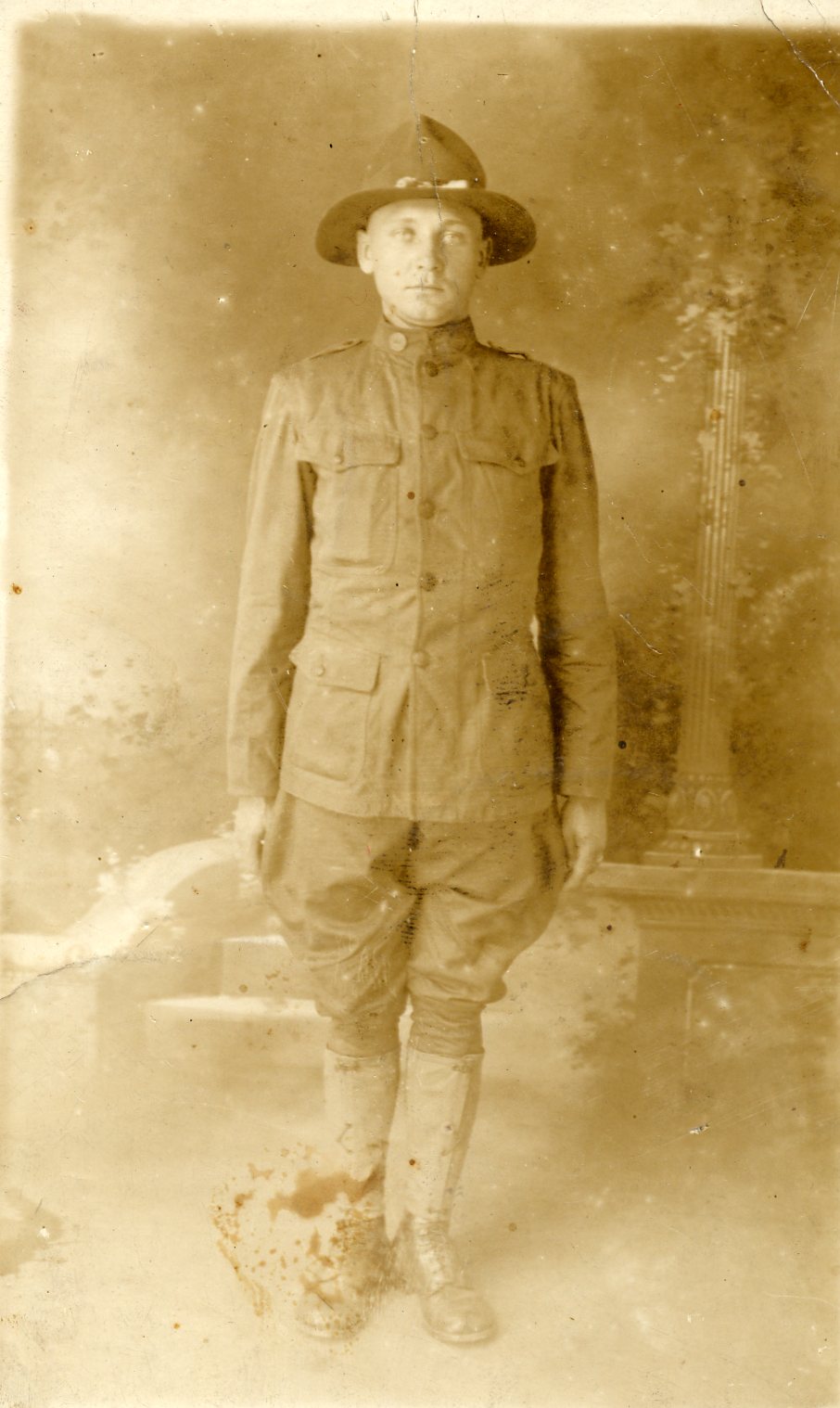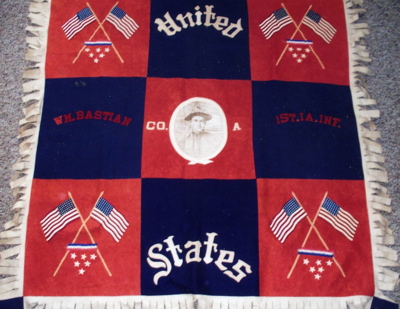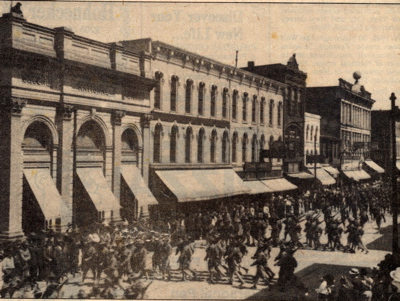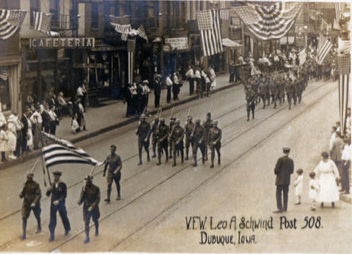Encyclopedia Dubuque
"Encyclopedia Dubuque is the online authority for all things Dubuque, written by the people who know the city best.”
Marshall Cohen—researcher and producer, CNN
Affiliated with the Local History Network of the State Historical Society of Iowa, and the Iowa Museum Association.
WORLD WAR I
This entry is being edited.
WORLD WAR I. Also known as the First World War, the Great War, and the "War to End All Wars," World War I was a global conflict which took place primarily in Europe from 1914 to 1918. More than 40 million casualties resulted, including approximately 20 million military and civilian deaths. Over 60 million European soldiers were mobilized from 1914 to 1918.
The event considered to have triggered war was the June 28, 1914 assassination of Archduke Franz Ferdinand, heir to the Austro-Hungarian throne, by Gavrilo Princip, a Bosnian Serb citizen of Austria-Hungary. The retaliation by Austria-Hungary against the Kingdom of Serbia activated alliances that set off a series of war declarations. Within a month, much of Europe was in a state of open warfare.
The causes of the war date back to the unification of Germany and the changing balances of power among the European Great Powers in the early 20th century. These causes included French resentment over the loss of territory to Germany in the 19th century; the economic and military competition between Britain and Germany; and the German desire for equality with the other countries of Europe.
The war was fought between two major alliances. The Entente Powers consisted of France, the United Kingdom, Russia, and their associated empires and dependencies. Other states joined these allies including Japan in August 1914, Italy in April 1915, and the United States in April 1917. The Central Powers, named because of their central location on the European continent, consisted of Germany and Austria-Hungary and their associated empires. The Ottoman Empire joined the Central Powers in October 1914, followed a year later by Bulgaria. By the conclusion of the war, only The Netherlands, Switzerland, Spain, the Scandinavian nations, and Monaco remained officially neutral among the European countries.
The fighting of the war mostly took place on the European continent. The Western Front was marked by a system of trenches, breastworks, and fortifications separated by an area known as no man's land. These fortifications stretched 475 miles and led to a style of fighting known as "trench warfare." On the Eastern Front, the vastness of the eastern plains and the limited railroad network prevented the stalemate of the Western Front, though the scale of the conflict was just as large. There was heavy fighting on the Balkan Front, the Middle Eastern Front and the Italian Front; there were also hostilities at sea and in the air.
In 1917 the draft went into effect in Iowa. Various churches, patriotic organizations and service clubs held farewell dinner parties for all those entering the service with treats and presents given each of the soldiers. (1) One the grandest parties held occurred on July 20, 1918 when 260 draftees made ready to leave Dubuque for their induction center in Camp Gordon, Georgia. (2)
Dubuque provided many heroic soldiers to the conflict. Gaining special attention were Gustav BILLIS and the GOVERNOR'S GREYS.
At home, civilians were asked to help support the war effort. "Minute speaker" volunteers spoke briefly to theater audiences to remind them of upcoming fund drives. (3) Many invested in war savings certificates. Business responded quickly to the war. The DUBUQUE BOAT AND BOILER WORKS manufactured a variety of ships. The production of sub-chasers, in addition to other work orders, caused the company to advertise its immediate need for more workers. It was rumored that those involved with the construction of ships would not be drafted. (4)
The war was ended by several treaties, most notably the Treaty of Versailles, signed on June 28,1919, though the Allied powers had an armistice with Germany in place since November 11, 1918. One of the results of the war was a large redrawing of the map of Europe. All of the Central Powers lost territory; several new nations were created.
After the war, the League of Nations was created as an international organization designed to avoid future wars by giving nations a means of solving their differences diplomatically. World War I ended the world order which had existed since the end of the Napoleonic Wars, but was an important factor in the outbreak of WORLD WAR II.
The sale of paper poppies annually in Dubuque and across the United States began as a result of the war. The Veterans of Foreign Wars conducted its first poppy distribution before Memorial Day in 1922, becoming the first veterans' organization to organize a nationwide distribution. The poppy soon was adopted as the official memorial flower of the Veterans of Foreign Wars of the United States.
It was during the 1923 encampment that the VFW decided that VFW Buddy Poppies be assembled by disabled and needy veterans who would be paid for their work to provide them with some form of financial assistance. The plan was formally adopted during the VFW's 1923 encampment. The next year, disabled veterans at the Buddy Poppy factory in Pittsburgh assembled VFW Buddy Poppies. The designation "Buddy Poppy" was adopted at that time.
In February 1924, the VFW registered the name "Buddy Poppy" with the U.S. Patent Office. A certificate was issued on May 20, 1924, granting the VFW all trademark rights in the name of Buddy under the classification of artificial flowers. The VFW has made that trademark a guarantee that all poppies bearing that name and the VFW label are genuine products of the work of disabled and needy veterans. No other organization, firm or individual can legally use the name "Buddy" Poppy.
Today, VFW Buddy Poppies are still assembled by disabled and needy veterans in VA Hospitals.
The minimal assessment (cost of Buddy Poppies) to VFW units provides compensation to the veterans who assemble the poppies, provides financial assistance in maintaining state and national veterans' rehabilitation and service programs and partially supports the VFW National Home for orphans and widows of our nation's veterans. (5)
On November 11, 1938 hundreds of Dubuque residents joined with members of the American Legion at 8th and Main observed the recently declared national holiday, Armistice Day. At 11:00 a.m. people paused briefly, turned to the east, and joined thousands nationwide in commemorating the dead of the First World War. (6)
---
Source:
1. "First Party for Selectees Big Success," Telegraph Herald, July 14, 1942, p. 1. Online: http://news.google.com/newspapers?id=mz9FAAAAIBAJ&sjid=kbsMAAAAIBAJ&pg=5212,1195993&dq=dubuque+during+world+war+i&hl=en
2. Ibid.
3. $20,000 Red Cross Fund Drive Tuesday," Telegraph Herald, Jan. 18, 1942, p. 1. Online: http://news.google.com/newspapers?id=zDpFAAAAIBAJ&sjid=lLsMAAAAIBAJ&pg=4309,1906790&dq=minute+speakers+dubuque&hl=en
4. "Work Started on Two 'Sub Chasers," Telegraph Herald, May 10, 1917, p. 3. Online: http://news.google.com/newspapers?id=AQleAAAAIBAJ&sjid=6V8NAAAAIBAJ&pg=6710,1896930&dq=dubuque+boat+and+boiler+works&hl=en
5. "Buddy Poppy," http://www.vfw.org/Community/Buddy-Poppy/
6. "War Dead Are Honored Here," Telegraph Herald, Nov. 11, 1938, p. 1. Online: http://news.google.com/newspapers?id=6ddBAAAAIBAJ&sjid=8akMAAAAIBAJ&pg=5557,2650496&dq=dubuque+during+world+war+i&hl=en


